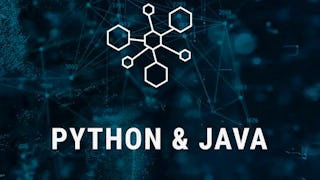Filter by
SubjectRequired
LanguageRequired
The language used throughout the course, in both instruction and assessments.
Learning ProductRequired
LevelRequired
DurationRequired
SkillsRequired
SubtitlesRequired
EducatorRequired
Explore the Functional Analysis Course Catalog
 Status: Free Trial
Status: Free TrialSkills you'll gain: Social Media Management, Social Media Marketing, Content Creation, Social Media Strategy, Social Media Campaigns, Instagram, Content Management, Content Performance Analysis, Brand Management, Facebook, Branding, Customer Engagement
 Status: Free Trial
Status: Free TrialGoogle Cloud
Skills you'll gain: Dataflow, Google Cloud Platform, Data Pipelines, Serverless Computing, Real Time Data, Dashboard, Cloud Infrastructure, Identity and Access Management, Big Data, Data Visualization Software, Data Integration, Cloud Security, Performance Tuning, Applied Machine Learning, Data Security, MLOps (Machine Learning Operations), CI/CD, Data Processing, Data Warehousing, Artificial Intelligence and Machine Learning (AI/ML)
 Status: Free Trial
Status: Free TrialKennesaw State University
Skills you'll gain: Six Sigma Methodology, Root Cause Analysis, Lean Methodologies, Process Improvement, Data Collection, Quality Improvement, Process Optimization, Lean Six Sigma, Correlation Analysis, Statistical Hypothesis Testing, Kaizen Methodology, Process Analysis, Probability Distribution, Regression Analysis, Process Capability, Business Process, Statistical Process Controls, Quality Management, Team Management, Continuous Improvement Process
 Status: Free Trial
Status: Free TrialJohns Hopkins University
Skills you'll gain: Shiny (R Package), Rmarkdown, Regression Analysis, Leaflet (Software), Exploratory Data Analysis, Statistical Inference, Predictive Modeling, Statistical Hypothesis Testing, Plotly, Machine Learning Algorithms, Interactive Data Visualization, Probability & Statistics, Data Visualization, Feature Engineering, Statistical Analysis, Supervised Learning, Statistical Modeling, Probability, Data Science, Data Analysis
 Status: Free Trial
Status: Free TrialKennesaw State University
Skills you'll gain: Statistical Process Controls, Statistical Hypothesis Testing, Process Capability, Team Management, Quality Improvement, Root Cause Analysis, Six Sigma Methodology, Lean Six Sigma, Lean Methodologies, Exploratory Data Analysis, Process Improvement, Quality Control, Probability & Statistics, Operational Excellence, Statistical Analysis, Process Analysis, Process Mapping, Correlation Analysis, Business Process Management, Data Analysis
 Status: Free Trial
Status: Free TrialUniversity of Pennsylvania
Skills you'll gain: Matplotlib, Object Oriented Design, Java, Object Oriented Programming (OOP), Data Analysis, Unit Testing, Pandas (Python Package), Eclipse (Software), Data Structures, Data Cleansing, Debugging, Pivot Tables And Charts, Data Visualization Software, Software Testing, Integrated Development Environments, Program Development, Programming Principles, Python Programming, Computer Programming, Computational Thinking
 Status: Free Trial
Status: Free TrialUniversity of California San Diego
Skills you'll gain: Graph Theory, Logical Reasoning, Combinatorics, Computational Logic, Deductive Reasoning, Cryptography, Probability, Key Management, Computational Thinking, Encryption, Network Analysis, Public Key Cryptography Standards (PKCS), Algorithms, Theoretical Computer Science, Python Programming, Data Structures, Cybersecurity, Arithmetic, Computer Programming, Mathematical Modeling

Skills you'll gain: Malware Protection, Cyber Threat Intelligence, Cyber Threat Hunting, Cyber Security Assessment, Application Security, Threat Detection, Virtual Machines, Code Review, Debugging, System Programming, Microsoft Windows, Scripting, Windows PowerShell, Virtualization, Computer Architecture, Linux
 Status: Free Trial
Status: Free TrialSkills you'll gain: Generative AI, ChatGPT, OpenAI, Prompt Engineering, Large Language Modeling, Artificial Intelligence, Program Development, Content Creation, Image Analysis, Virtual Environment
 Status: Free TrialStatus: AI skills
Status: Free TrialStatus: AI skillsSkills you'll gain: Data Storytelling, Business Metrics, Key Performance Indicators (KPIs), Data Management, Data Collection, Data Governance, Bayesian Statistics, Data Analysis, Descriptive Statistics, Statistical Hypothesis Testing, Information Privacy, Data Cleansing, Pandas (Python Package), Data Visualization Software, Statistical Inference, Spreadsheet Software, Correlation Analysis, Google Sheets, Exploratory Data Analysis, Data Modeling
 Status: Free Trial
Status: Free TrialUniversity of California San Diego
Skills you'll gain: Unit Testing, Growth Mindedness, Data Structures, Graph Theory, Event-Driven Programming, Interactive Data Visualization, Java, Network Analysis, Object Oriented Programming (OOP), Technical Communication, Development Testing, User Interface (UI), Java Programming, Software Testing, Computer Programming, Adaptability, Object Oriented Design, Performance Tuning, Algorithms, Software Design

Knowledge Accelerators
Skills you'll gain: Power BI, Dashboard, Data Presentation, Interactive Data Visualization, Data Analysis Expressions (DAX), Data Import/Export, Microsoft Excel, Data Visualization Software, Business Intelligence, Data Modeling, Data-Driven Decision-Making, Data Sharing
Functional Analysis learners also search
In summary, here are 10 of our most popular functional analysis courses
- Social Media Management : Meta
- Vertex AI Search for Retail: Google Cloud
- Six Sigma Yellow Belt: Kennesaw State University
- Data Science: Statistics and Machine Learning: Johns Hopkins University
- Six Sigma Green Belt: Kennesaw State University
- Introduction to Programming with Python and Java: University of Pennsylvania
- Introduction to Discrete Mathematics for Computer Science: University of California San Diego
- Malware Analysis and Introduction to Assembly Language: IBM
- Generative AI: Introduction and Applications: IBM
- Meta Data Analyst: Meta










